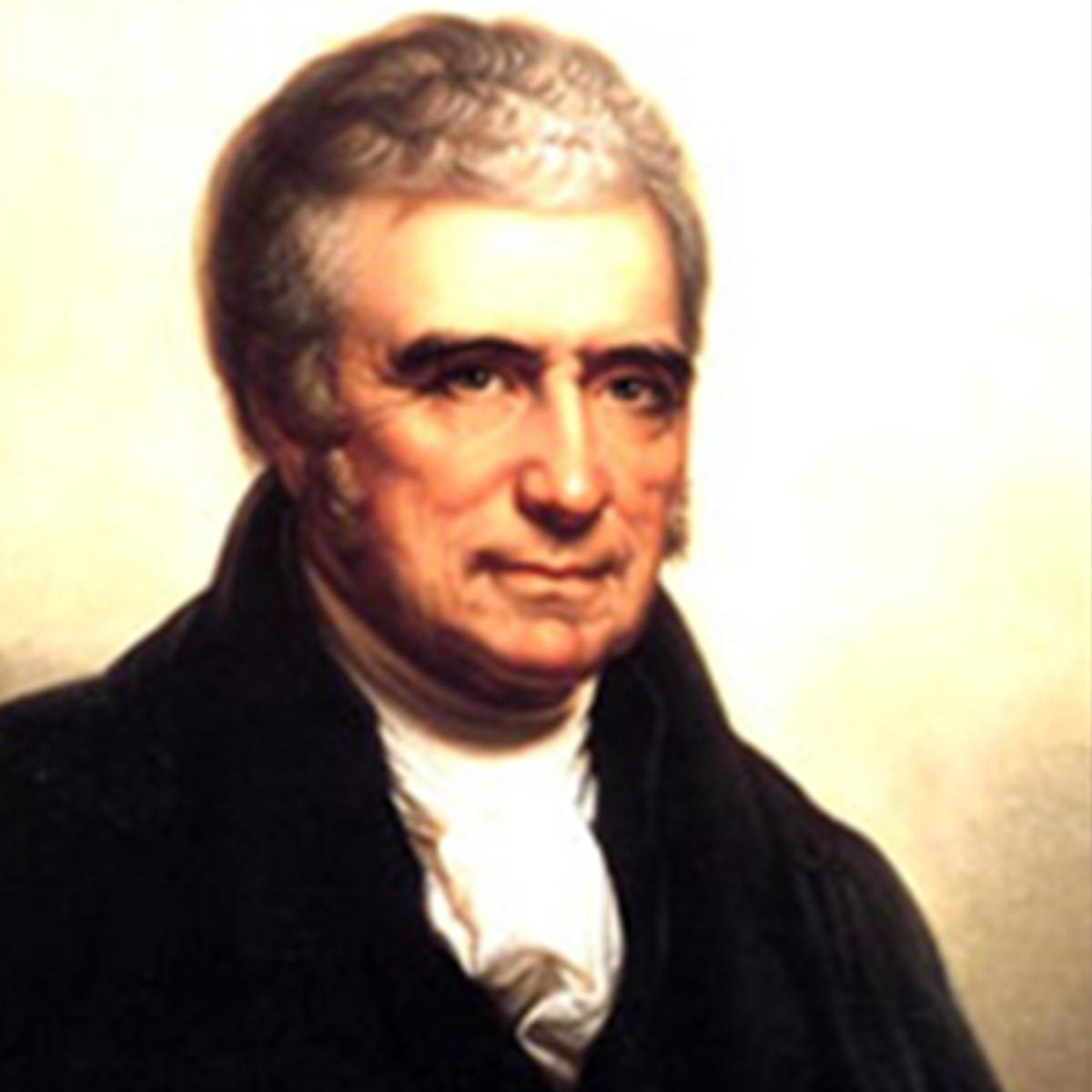John Marshall
September 12

GUARDIAN OF THE RULE OF LAW
John Marshall began his public service as a soldier in the Continental Army fighting the British during the American Revolution. By the time he was discharged, he had gained the rank of captain. He spent the brutal winter of 1777-1778 at Valley Forge.
After he completed his service in the American Revolution, he studied law. He soon was elected to the Virginia Legislature, and served a leading role in the Virginia Constitutional Convention that approved the Constitution. He served as diplomat under President John Adams in France, and upon his return he was elected to the House of Representatives. He served for a short period as Secretary of State under Adams, who then appointed him to be Chief Justice of the United States Supreme Court.
Marshall took hold of what had up to then been a relatively modest institution and transformed the Supreme Court into the guardian of the Constitution and the Rule of Law.
His most noteworthy decision was Marbury v Madison, in which he found that an act passed by Congress granting the Supreme Court original jurisdiction over a type of case (a writ of mandamus) to have exceeded the power vested in Congress by the Constitution.
In the course of Marbury, Marshall established the bedrock constitutional principle that the Supreme Court would determine the meaning of the Constitution. Furthermore, the opinion established the key doctrine of judicial review, which provides that the Supreme Court has the duty to strike down any legislation or action in violation of the Constitution.
In a great historical irony, during the course of a decision that found that the Supreme Court could not act (because the act that tried to give the Supreme Court the power to hear the case went beyond the jurisdiction provided to the Supreme Court in Constitution), Marbury definitely established that the Supreme Court would be a vital and vibrant branch of government in protecting the separation of powers, checks and balances, and the rule of law.
Marshall passed away on July 6, 1835.


